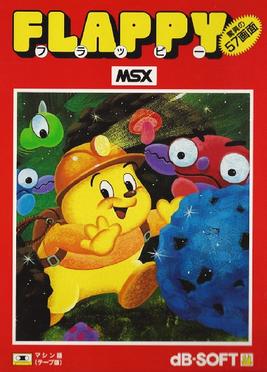
A new open-source version of the beloved mobile game Flappy Bird has emerged, enabling players to enjoy the classic experience while also allowing developers to customize and modify the game as they wish. This unofficial clone, boasting a compact size of approximately 100 KB, revives the iconic gameplay that captivated millions when it first launched. As enthusiasts explore this clone, it opens the door for creative development within the gaming community.
The original Flappy Bird, released in 2013 by Vietnamese developer Dong Nguyen, was celebrated for its simplistic design and addictive mechanics, where players navigate a bird through a series of pipes. Despite its popularity, Nguyen removed the game from app stores in early 2014, citing the overwhelming attention it received as a reason for his decision. This action left many fans yearning for the experience, and the game has since inspired numerous unofficial adaptations and clones.
The newly released open-source clone allows developers to dive into the code, making it easier to understand the mechanics that made the original game so appealing. This initiative is part of a broader trend in gaming, where open-source projects encourage innovation and community-driven development. The source code is available on platforms like GitHub, making it accessible for anyone interested in tinkering with game mechanics or creating their own versions.
Emerging trends in gaming show a significant shift towards community collaboration, particularly in the indie game sector. Developers are increasingly sharing their work and knowledge, fostering an environment where budding programmers can learn and contribute. The release of this Flappy Bird clone embodies this spirit, providing a starting point for those looking to enter game development without the intimidation often associated with complex coding.
A range of developers and enthusiasts have expressed enthusiasm about the potential for this open-source clone. Many view it as an opportunity to enhance their coding skills, while others see it as a chance to rekindle their nostalgia for the original game. The lightweight nature of the clone, at only 100 KB, ensures that it can be run on various devices without requiring extensive resources, making it accessible for a broader audience.
The rise of open-source gaming also reflects a changing landscape in the industry, where community-driven projects are gaining traction. Gamers are not just consumers; they are increasingly becoming creators. This shift has led to a surge in independent projects, many of which draw inspiration from popular titles while introducing new ideas and mechanics. The Flappy Bird clone exemplifies this trend, allowing developers to experiment and innovate.
As the gaming community continues to explore the possibilities of open-source development, various tools and resources are becoming available. Platforms such as GitHub host numerous game development projects, enabling collaboration and knowledge sharing among developers. This culture of openness encourages programmers to push the boundaries of traditional game design, resulting in unique and diverse gaming experiences.
In addition to enhancing coding skills, open-source projects provide invaluable networking opportunities for developers. By participating in these initiatives, they can connect with like-minded individuals, share ideas, and collaborate on projects that might not be feasible alone. This sense of community is vital in an industry where networking can significantly impact career growth and opportunities.
The popularity of retro-style games like Flappy Bird highlights a growing appreciation for simplicity in game design. Many contemporary gamers gravitate towards experiences that evoke nostalgia, and the open-source Flappy Bird clone taps into this desire. The game’s straightforward mechanics make it easy to play, yet challenging enough to keep players engaged, catering to both casual and dedicated gamers.
In the evolving gaming landscape, the success of this clone reflects a deeper trend where the lines between player and developer continue to blur. The increasing accessibility of game development tools has democratized the process, allowing more individuals to create and share their projects. This movement has resulted in a vibrant ecosystem of independent games, many of which embrace the spirit of innovation seen in the Flappy Bird clone.



